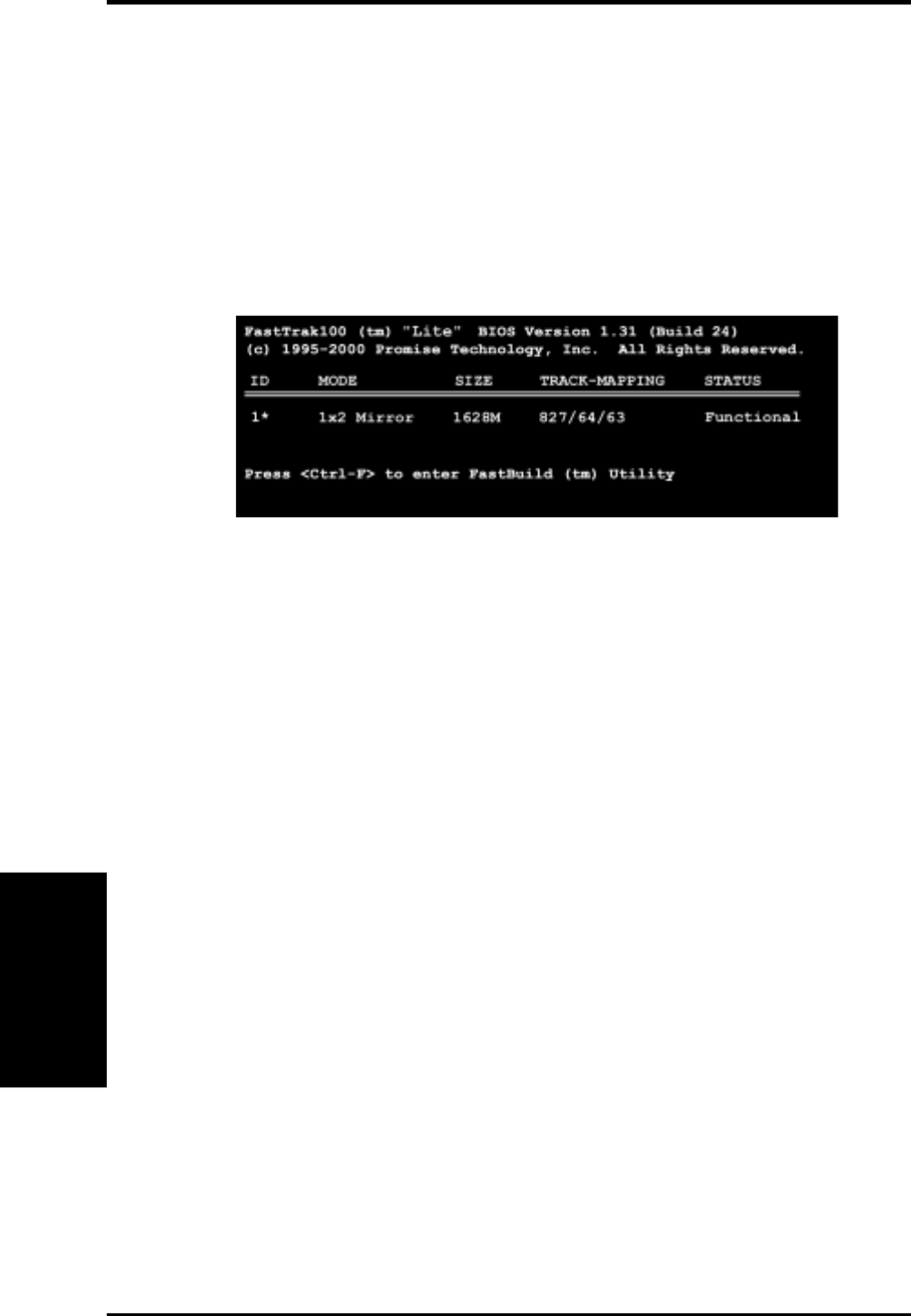
90
5. SOFTWARE SETUP
ASUS A7V133 User’s Manual
5. S/W SETUP
RAID
5. The utility prompts: Please Select A Source Disk. Choose the pre-existing hard
disk as the source and then a new, blank hard disk as the target. Then select
<Ctrl-Y> to save the selection. The utility prompts a choice between <Y> to
continue and <N> to stop and escape. Choosing <Y> begins to duplicate the
source hard disk onto the target hard disk.
6. To configure two new blank hard disks in a RAID 1 array, choose <N> for
Create Only; (At step 3). The FastBuild™ utility configures the RAID 1 array
and a message appears: Array has been created... <Press Any Key to REBOOT>
7. Rebooting the system allows the FastTrak100™ “Lite” BIOS to display the
status of your new array:
8. If duplicating an original Operating System to another new hard disk, the system
will start up automatically. If creating a brand new RAID 1 array only, it will be
necessary to intstall a new OS. Reboot with a rescue floppy disk to format the
hard disks with the FDISK command and then install the OS from a CD;
alternatively, with a bootable OS CD, install the new OS automatically.
NOTES for Troubleshooting Array Set Ups:
Always use two separate UltraDMA/100 cables for linking each of two hard disks to
the Primary ATA-100 and the Secondary ATA-100 connectors. Usually, a two disk
array will set up properly if both sets of hard disk jumpers are set to Master. However,
it may be necessary to reset the jumpers on each of the hard disks; in such cases, try
Master for the Source disk, and Master/Slave or Slave for the Target disk. Also, if a
Source hard disk larger than the Target disk is selected, the FastBuild™ utility suggests
using a larger or equal size disk for the Target instead. During reboots after configuring
a RAID array, the IDE scan process determines if the system is working okay.
Normally the FastTrak100™ “Lite” BIOS displays system status as Functional after
rebooting the new RAID array. However, two warnings may appear: Critical indicates
that one or more drives in the array are not functional, or are disconnected. In this
case, enter the FastBuild™ Utitility to diagnose the problem and replace the faulty
drive. The second warning, Offline, indicates that one hard disks in a striped array
has failed, cannot be detected, or has become disconnected. In this case, adjust or
replace the hard disk if necessary and rebuild data from a back-up source.


















